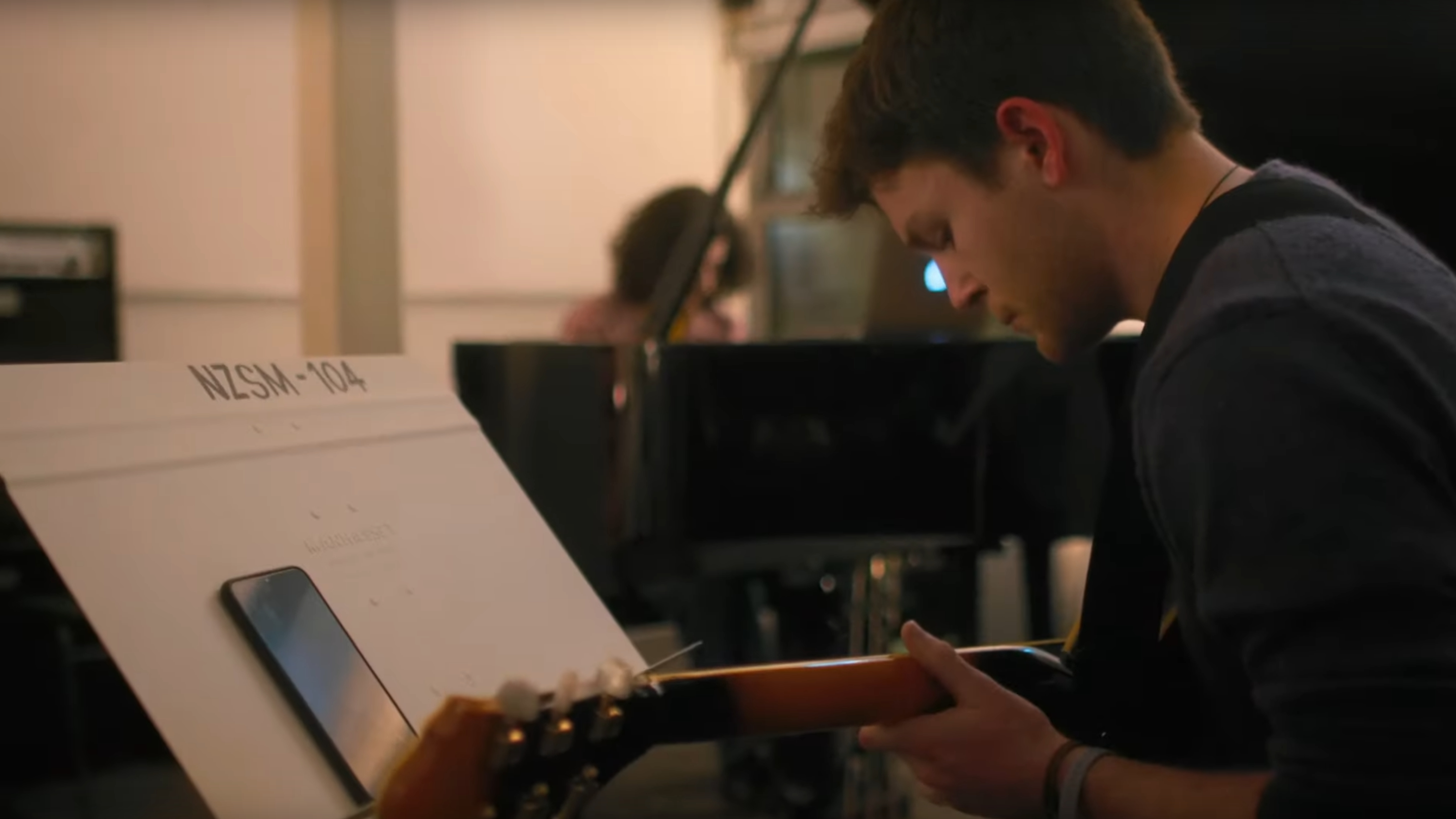-
Apply by 1 May 2025 to start 7 Jul 2025
If you love music—whether it be listening to it, playing an instrument, singing or composing—and want to study the subject in depth at the leading music school in New Zealand, then a Bachelor of Music is right for you.
Immerse yourself in music
The Bachelor of Music (BMus) is a three-year undergraduate degree designed to prepare you for a career in the creative and challenging world of music or in a variety of other professions.
Develop your understanding of music while working on your skills in performance or composition under the supportive guidance of internationally recognised musicians and academics. You'll be encouraged to push the limits of your creative abilities, so you graduate as a confident and skilled musician. You'll also take an academic approach to studying music and gain skills in writing, critical thinking, teamwork and communication that are valuable in many different careers.

Get email updates about the Bachelor of Music
Fill in the form to find out about our majors, see why Wellington’s the best place to study music, and meet the creative and talented people who teach our courses.
Follow your interests
Choose to major in either Classical Performance, Jazz Performance, Instrumental/Vocal Composition, Digital Music and Audio Production, or Music Studies. You'll study music theory and, depending on your chosen focus, you might learn in one-to-one lessons or as part of an ensemble, or focus on music in cultural and historical contexts.
If you're passionate and creative with a drive to succeed in music then this degree is ideal for you. Get prepared for a professional career in music or in a related industry, or to continue on to postgraduate studies.

Important information
- For many BMus courses, some background in music theory is recommended. If you don't have this, you can take MUSC 160 to prepare you.
- You'll need to audition for a place in Classical or Jazz Performance. Read more about auditions
- You'll find that studying for the BMus in Classical Performance, Instrumental/Vocal Composition, Jazz Performance, and Digital Music and Audio Production is intensive, so most students primarily study Music courses.
- If you want a broader degree allowing you to combine Music with more courses in other subjects, the Bachelor of Arts (BA) in Music will be more suitable. For students who enjoy being extended, it is possible to take a conjoint degree combining a BMus and a BA.
- For Classical Performance, Jazz Performance, and Instrumental/Vocal Composition, starting in Trimester 2 will increase the length of full-time study to 3.5 years.
First year
In your first year you're likely to take at least six courses. Most or all of these will be core courses you'll need for your major. If you're majoring in Classical Performance, Digital Music and Audio Production, or Music Studies, you'll also be able to choose one or two electives.
You might study the development of popular music, western art music, jazz history, or music in global context, and receive basic training in harmony and counterpoint, aural perception and keyboard skills. You could also play in the big band or orchestra as part of a large ensemble course. Performance students will give a 15–20-minute recital at the end of the year.
By the end of your first year you'll have a solid foundation in your major subject.
Second year
In the middle year of your degree you're likely to take a minimum of six courses. In this year there are fewer core courses and you'll have more choice to follow your particular interests or career aspirations. You might take a gamelan performance course, learn about recording, mixing, and audio production, be part of a fusion jazz ensemble, study 19th century European music, and more.
Performance students will give a recital at the end of the year of approximately 30 minutes.
At the end of your second year you'll be developing your creative and academic skills and be ready for more advanced music study in your final year.
Third year
In the third year you'll study primarily 300-level courses but are likely to take two or three other electives from courses at 200 or 300 level.
Depending on your major you might study film music, orchestrate music for large ensembles or do an in-depth study of the social and historical context of an aspect of jazz.
Performance students will give a recital of around 50 minutes at the end of the year.
By this stage you'll have developed an intimate understanding of your major and will be confident in your music skills as a creator, critical thinker, writer, and performer.
Get a Master's degree
At the end of your three-year BMus you can choose to continue your learning with postgraduate studies. Give your career options a boost and choose from a range of postgraduate programmes offered.
Flexibility in your degree
Take advantage of the flexibility offered by Victoria University of Wellington. Depending on your degree, you may be able to do a:
- Double major—specialise in two subjects in your degree.
- Minor—specialise in another BMus subject (Digital Music and Audio Production, Popular Music) without doing as many courses as for a major.
- Conjoint degree—this intense programme lets you complete two degrees more quickly, usually in four years, by requiring you to do fewer courses.
International scholarships
Many scholarships are available for international students at Victoria University of Wellington. They can help with tuition fees and with accommodation costs.
Next
Requirements
